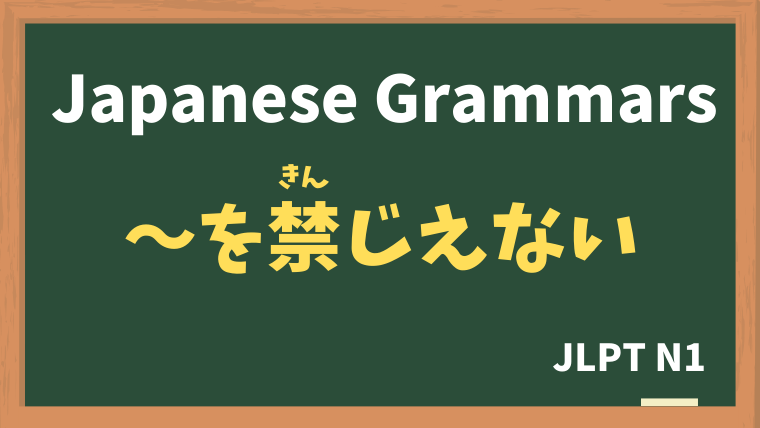
Explanation:〜を禁じえない
fa-check-circleMeaning
"〜という気持ち・感情を抑えることができない / 〜という気持ちを我慢できない"
Used to express that the speaker cannot suppress or help feeling a certain strong emotion, usually in reaction to something surprising, shocking, or deeply moving. It conveys the idea that the emotion is so overwhelming that it cannot be held back or avoided. This phrase is often used in formal or literary contexts.
fa-check-circleForm
N + を禁じえない
fa-check-circlePoints
- Uncontrollable Emotion: "〜を禁じえない" implies that the speaker cannot suppress or control their emotions in response to a specific event or situation.
- Formal Expression: It is a formal and literary expression, typically used in written language, news reports, or serious discussions.
- Emotionally Charged: The emotion being felt is usually strong, such as sadness, anger, admiration, or shock.
fa-check-circleJLPT Level
N1
Sample sentenes
地震で両親を失った彼には同情を禁じえません。
I cannot help but sympathize with him who lost both his parents in the earthquake.
この映画のラストシーンでは、誰もが涙を禁じえないでしょう。
In the final scene of this movie, everyone will surely be unable to hold back tears.
上司の女性にだけ優しくする態度は怒りを禁じえない。
I can't help but feel angry at his attitude of being kind only to the female superiors.
日本語を勉強してまだ半年なのに、JLPT N1に合格したなんて、誰もが驚きを禁じえなかった。
He passed the JLPT N1 after studying Japanese for only six months, and everyone couldn't help but be amazed.
期待はしていなかったが、内定の連絡をもらった時は喜びを禁じえなかった。
I wasn't expecting it, but I couldn't contain my joy when I received the job offer.






